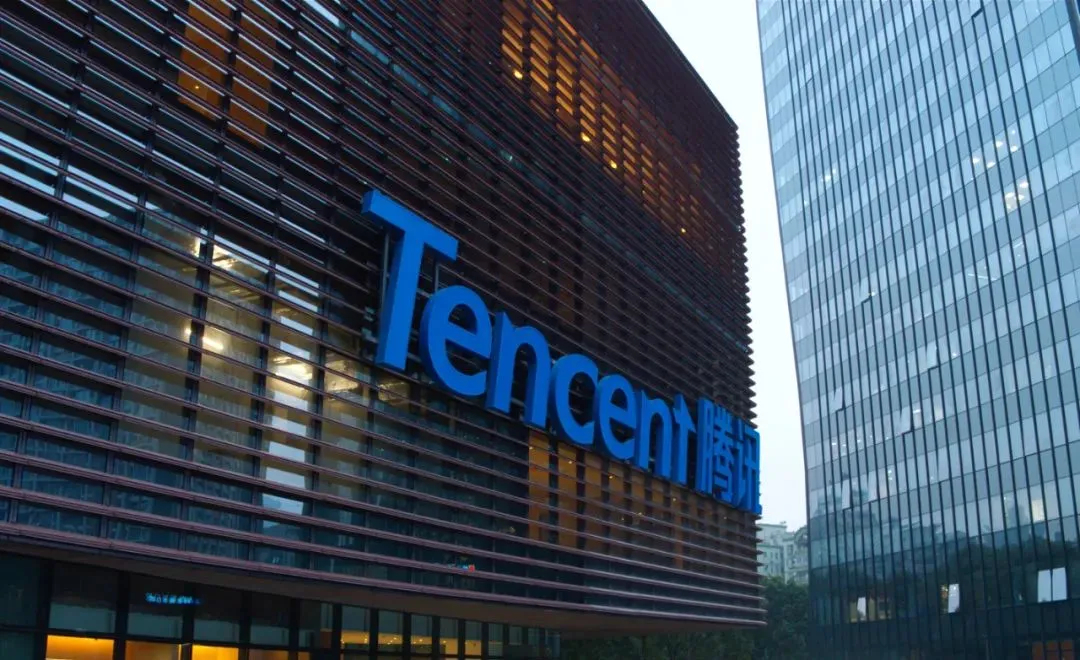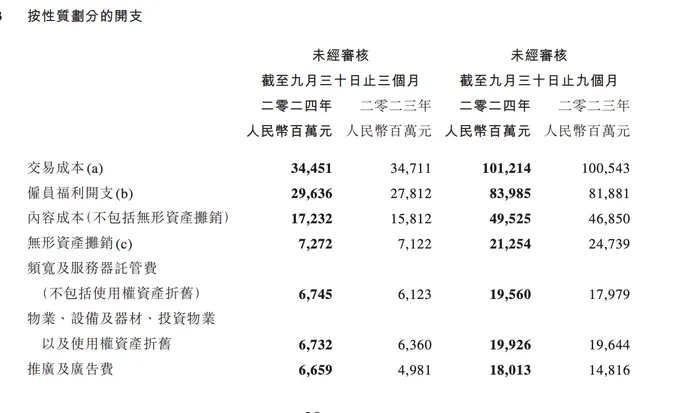Over 3,000 New Hires! Tencent's Financial Report Signals Optimism
Tencent Releases Q3 2024 Financial Report: Strong Growth Continues
Tencent (00700. HK) has published its financial results for Q3 2024, reporting sustained growth. The company achieved revenue of RMB 167.19 billion, an 8% year-over-year (YoY) increase. Gross profit rose 16% YoY to RMB 88.83 billion, while non-IFRS net profit surged by 33% YoY to RMB 59.81 billion.
A notable highlight of the quarter was a significant workforce expansion. Following an increase of over 700 employees in Q2, Tencent added 3,317 employees in Q3, bringing its total headcount to 108,800. Increased spending on promotion and research and development (R&D) further indicates the company's cost-cutting measures may have ended.

"Evergreen Games" as a Core Growth Engine
When reviewing Q3 performance, Tencent Chairman and CEO Pony Ma emphasized the company's focus on gaming, e-commerce, and AI. Tencent’s gaming revenue saw robust growth, driven by the strong performance of "evergreen games" globally and the contribution of new games with long-term potential.
Since the beginning of 2024, Tencent has pivoted its gaming strategy to focus on "evergreen games." Tencent Senior Vice President Steven Ma previously described evergreen games as more than individual titles—they are platforms. For example, Game for Peace integrates various shooting gameplay options, while League of Legends has expanded to include products like Teamfight Tactics. In an internal Tencent Interactive Entertainment Group (IEG) meeting in October, Steven Ma explained that this shift was driven by the maturing Chinese gaming market, where blockbuster titles are increasingly rare.

This strategic pivot has shown tangible results. Tencent's financial report categorizes its 19 evergreen games into three groups: flagship evergreen games, other evergreen games, and new games with evergreen potential. Seven games cater to international markets, while 12 target domestic audiences. Flagship titles such as Honor of Kings (which recently surpassed 100 million daily active users) and Game for Peace (with September revenue up 24% YoY) have delivered exceptional performance.
Gaming revenue in Q3 rose 12.6% YoY to RMB 51.8 billion, with domestic revenue growing 14% YoY to RMB 37.3 billion. Internationally, revenue increased 9% YoY to RMB 14.5 billion, bolstered by the strong performance of titles like PUBG MOBILE and Brawl Stars.
WeChat's Bet on E-Commerce Unlocks New Growth
WeChat's user base continued its steady growth in Q3, with combined monthly active users of WeChat and Weixin reaching 1.382 billion, up 3% YoY and 0.8% quarter-over-quarter. The robust and growing WeChat ecosystem is generating new opportunities for Tencent.
The company reported that transaction volume via WeChat Mini Programs exceeded RMB 2 trillion in Q3, driven by improvements in dining, EV charging, and healthcare services. Notably, Tencent introduced "WeChat Shops" for the first time in its Q3 report. On August 25, Tencent began allowing merchants to upgrade their Video Account Shops to WeChat Shops, enabling seamless integration across the WeChat ecosystem. Features include simplified onboarding processes, enhanced brand certification, and reduced entry barriers such as lower deposit requirements.

WeChat Shops also support products and store information across multiple WeChat channels, including public accounts, Mini Programs, and Video Accounts, ensuring a unified transactional experience. At the end of October, Tencent launched the "WeChat Shop Assistant" app to help merchants manage stores, access analytics, and provide customer support via mobile devices.
During the August earnings call, Tencent President Martin Lau highlighted the company's e-commerce vision: “We aim to build an ecosystem that connects across the entire WeChat platform—not just Video Accounts or live streaming—but also leveraging public accounts, Mini Programs, and more." Pony Ma reaffirmed this in the Q3 report: "Our strategy for WeChat Shops aims to deliver a unified and trustworthy transaction experience powered by the entire WeChat ecosystem."

R&D and AI Investments Signal Growth Amid Rising Expenses
In contrast to previous quarters focused on cost optimization, Tencent’s Q3 report reflects significant marketing and R&D spending increases. Marketing expenses rose 19% YoY to RMB 9.4 billion, while general and administrative expenses grew 11% YoY to RMB 29.1 billion.
R&D spending also saw a notable rise, particularly in areas like server bandwidth (up 10.2%) and capital expenditures (increased to RMB 12 billion). These trends align with Tencent's heightened investments in AI. During the quarter, Tencent unveiled the upgraded Hunyuan Turbo foundation model, which doubled training and inference efficiency while halving inference costs.
While Tencent's AI investment strategy remains cautious compared to some global peers, the company's spending is steadily increasing. Martin Lau explained that China's enterprise services market is still nascent, and AI startups with substantial computing needs are scarce, delaying revenue growth comparable to overseas markets. However, Tencent's deliberate, cost-effective approach to AI positions it for future gains.
Tencent's significant workforce expansion, increased promotional and R&D spending, and firm performance in gaming and e-commerce signal the end of its cost-cutting phase. The company appears to have entered a new phase of proactive growth and strategic investment, laying a solid foundation for continued success.









